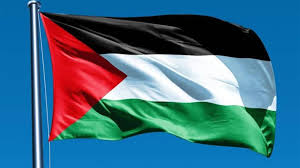Recognition of the State of Palestine: A Diplomatic Shift that Reinforces the 1967 Borders and Confronts Israeli Expansion
September 19, 2025237 ViewsRead Time: 3 minutes

Font Size:
16
In a historic diplomatic move, the French presidency announced that ten European and non-European countries will declare recognition of the State of Palestine during a conference to be held in New York next Monday on the sidelines of the United Nations General Assembly meetings. This collective step represents a strategic shift in the international stance towards the Palestinian issue, coming at a highly sensitive time with the escalation of Israeli threats to annex parts of the West Bank.
The announced group, which includes France along with Britain, Australia, Canada, Belgium, Luxembourg, Portugal, Malta, Andorra, and San Marino, sends a clear message that the international community is no longer standing idly by in the face of unilateral Israeli actions. Additionally, the French affirmation that the 1967 borders are the future borders of the Palestinian state represents a clear framework for the solution adopted by these countries.
The French warning that the Israeli annexation of the West Bank represents a "clear red line" and the "worst violation of international law" reflects a growing European concern over Israeli policies under Netanyahu's government. This position is consistent with recent statements by President Macron, who strongly criticized Israeli operations in Gaza, considering them "failed" and leading to the destruction of Israel's image and credibility globally.
It is noteworthy that the French announcement also included encouragement for the Syrian authorities to "advance in their dialogue with Israel to ensure Syria's security," indicating a comprehensive European vision for the Middle East region based on diplomacy and political settlements rather than military options.
This major diplomatic step comes in preparation for the summit scheduled to be held on the Palestinian issue on September 22, which Saudi Arabia and France will co-chair. The summit, during which Macron promised French recognition of the State of Palestine, represents a serious attempt to relaunch the peace process on new foundations, isolating Hamas through the option of diplomacy and international recognition.
Recent developments indicate a fundamental shift in the international position, where the Palestinian issue is no longer just a regional issue, but has become a test of commitment to international law and principles of justice. The increasing recognition of the State of Palestine reflects an international awareness that the two-state solution is the only guarantee for lasting stability in the region.
As these countries prepare for their historic conference in New York, the question remains: Will this step be enough to deter Israel from its expansion and annexation policies, or will it be just another diplomatic statement added to a record of statements that have not been implemented on the ground?
The announced group, which includes France along with Britain, Australia, Canada, Belgium, Luxembourg, Portugal, Malta, Andorra, and San Marino, sends a clear message that the international community is no longer standing idly by in the face of unilateral Israeli actions. Additionally, the French affirmation that the 1967 borders are the future borders of the Palestinian state represents a clear framework for the solution adopted by these countries.
The French warning that the Israeli annexation of the West Bank represents a "clear red line" and the "worst violation of international law" reflects a growing European concern over Israeli policies under Netanyahu's government. This position is consistent with recent statements by President Macron, who strongly criticized Israeli operations in Gaza, considering them "failed" and leading to the destruction of Israel's image and credibility globally.
It is noteworthy that the French announcement also included encouragement for the Syrian authorities to "advance in their dialogue with Israel to ensure Syria's security," indicating a comprehensive European vision for the Middle East region based on diplomacy and political settlements rather than military options.
This major diplomatic step comes in preparation for the summit scheduled to be held on the Palestinian issue on September 22, which Saudi Arabia and France will co-chair. The summit, during which Macron promised French recognition of the State of Palestine, represents a serious attempt to relaunch the peace process on new foundations, isolating Hamas through the option of diplomacy and international recognition.
Recent developments indicate a fundamental shift in the international position, where the Palestinian issue is no longer just a regional issue, but has become a test of commitment to international law and principles of justice. The increasing recognition of the State of Palestine reflects an international awareness that the two-state solution is the only guarantee for lasting stability in the region.
As these countries prepare for their historic conference in New York, the question remains: Will this step be enough to deter Israel from its expansion and annexation policies, or will it be just another diplomatic statement added to a record of statements that have not been implemented on the ground?